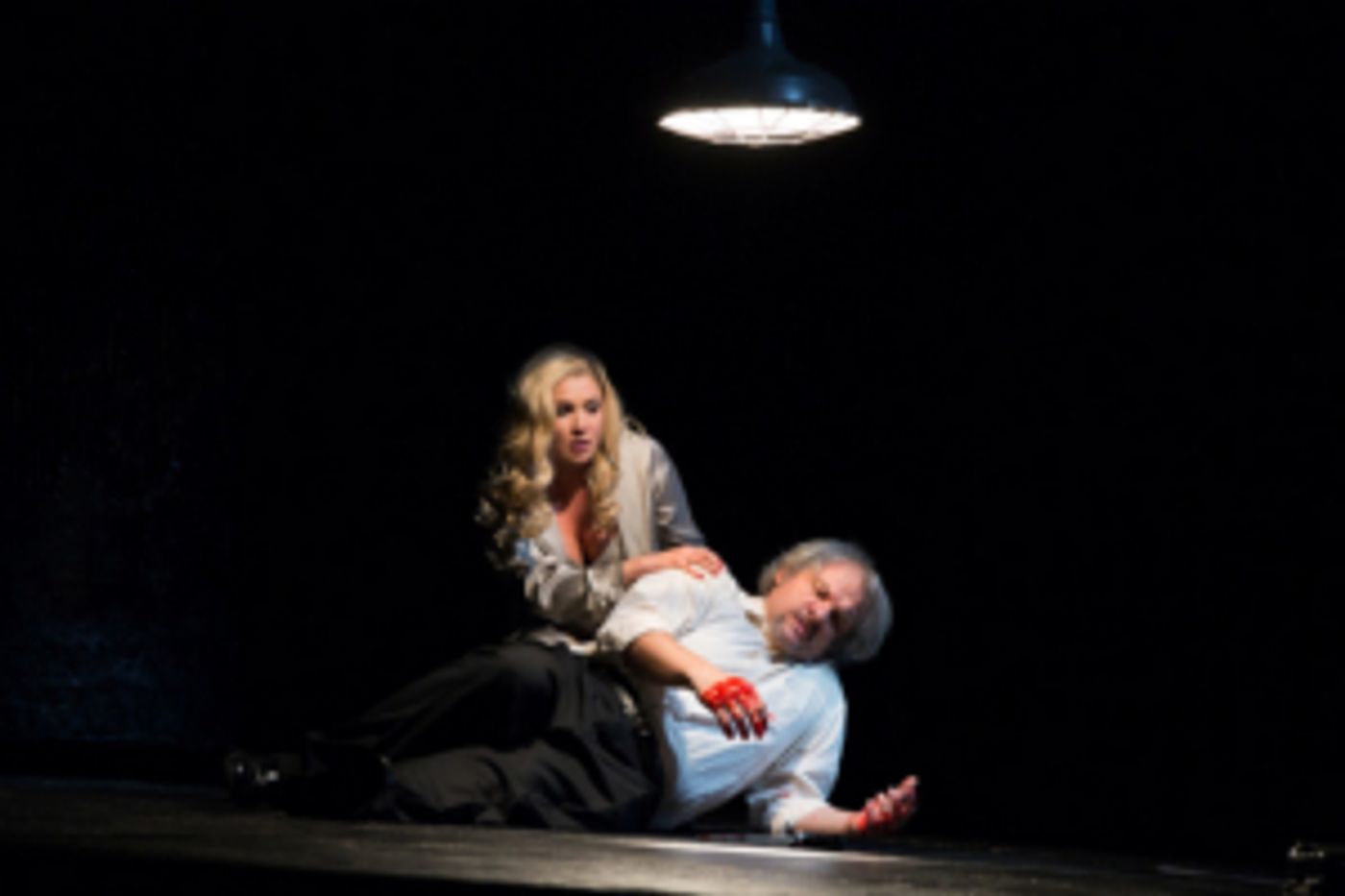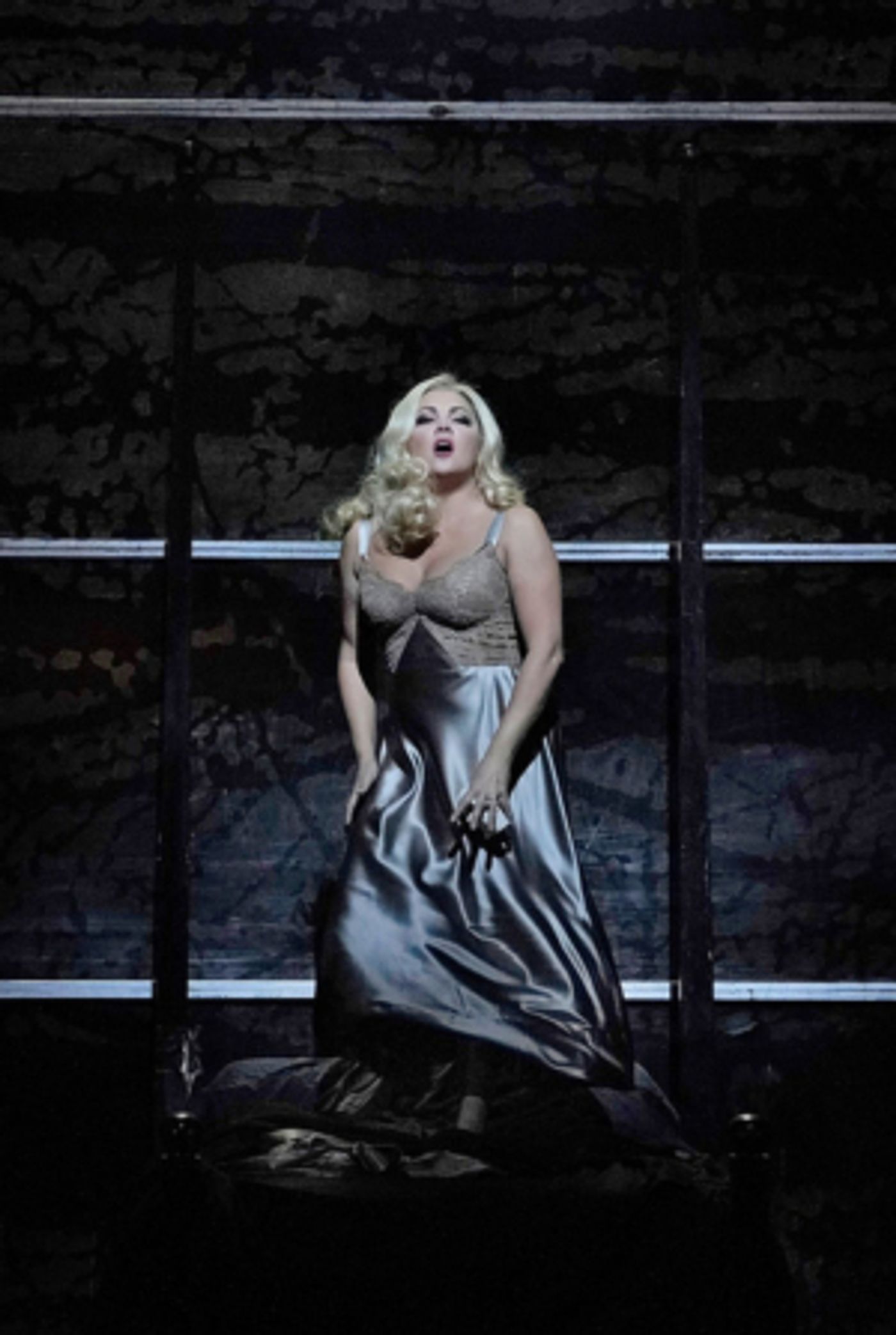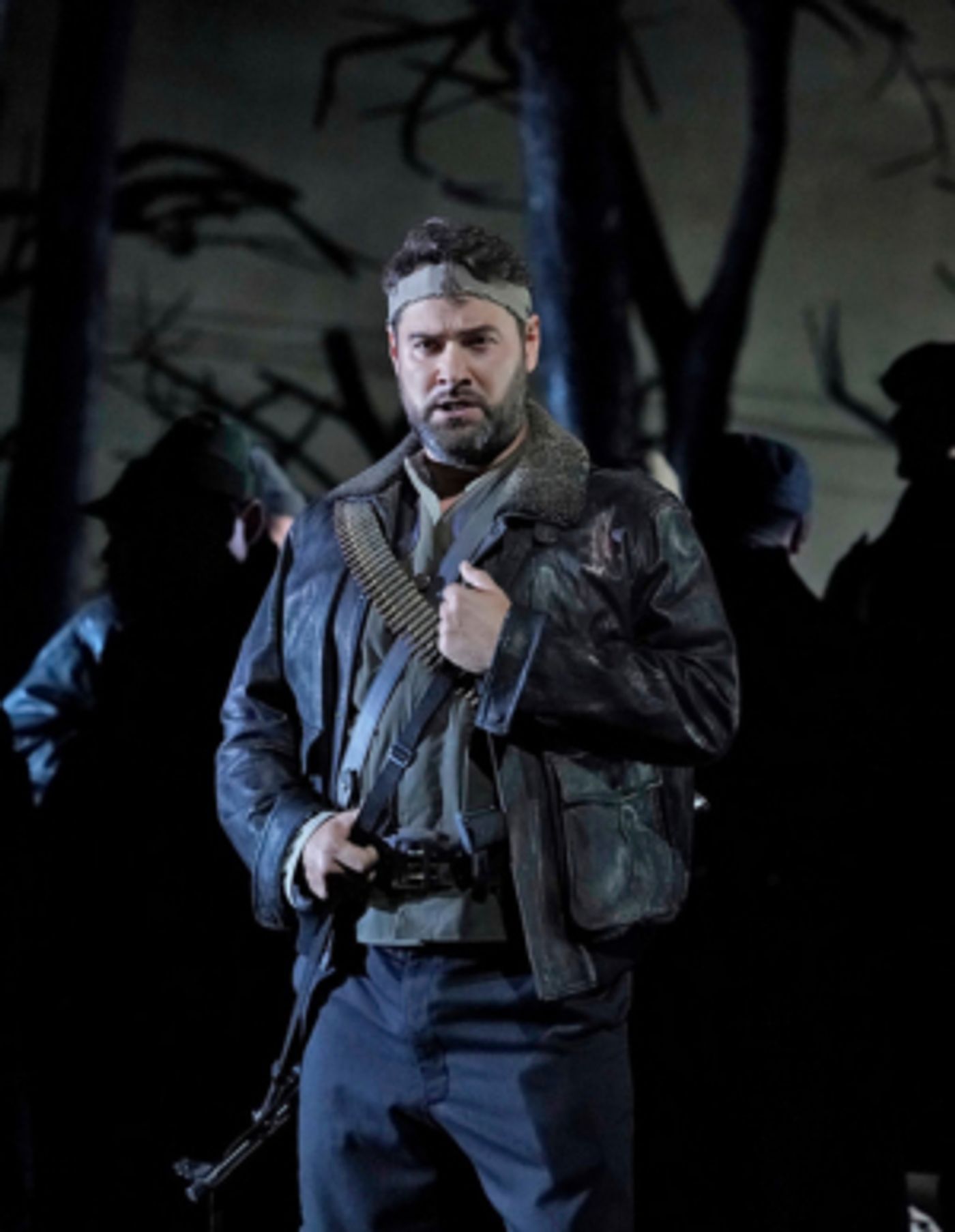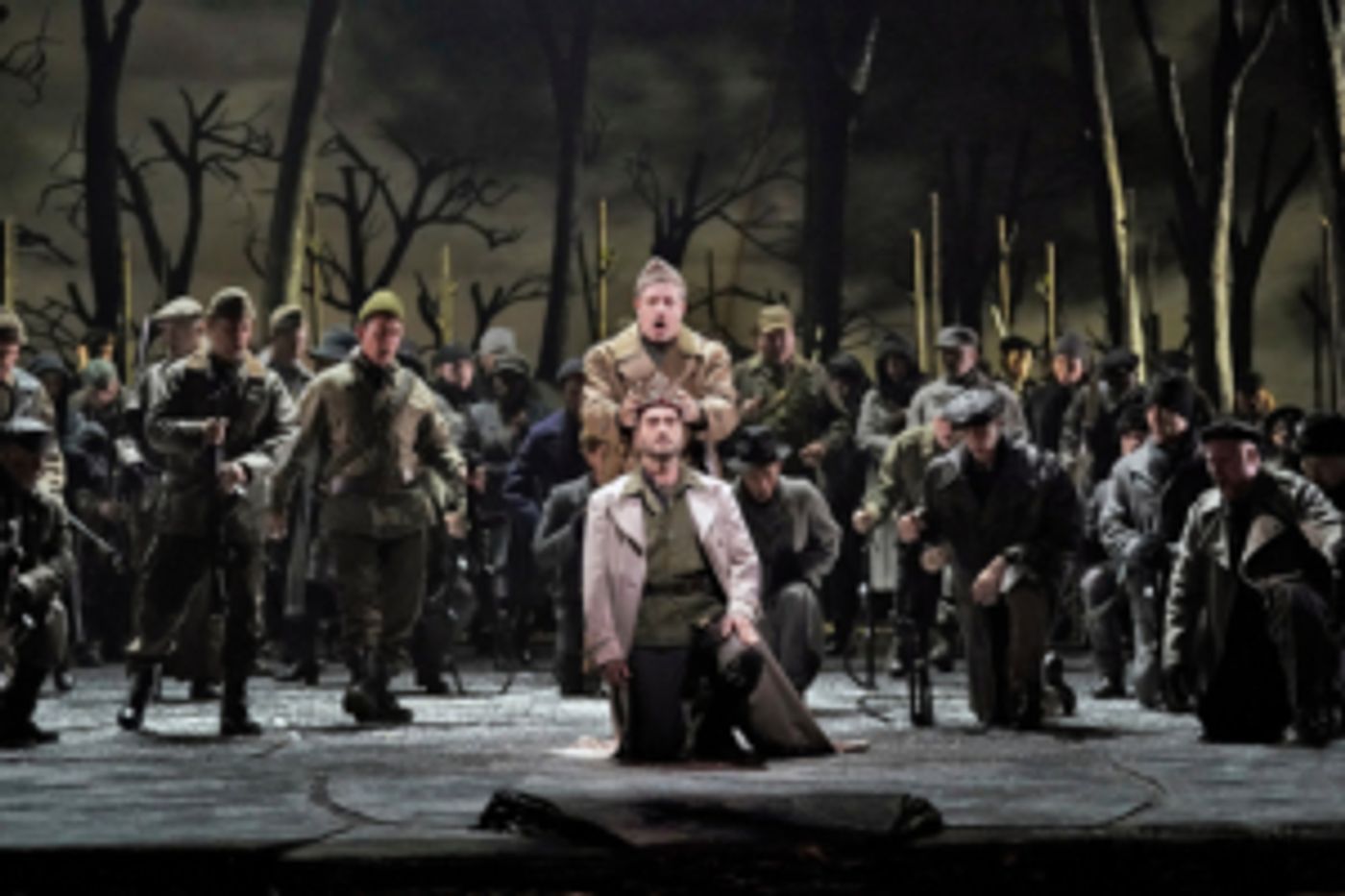Review: Double, Double, Netrebko's Got No Trouble with MACBETH's Lady, in a Take-Charge Performance

Ken Howard/Met Opera
Five years ago, Anna Netrebko unveiled her take on Verdi's Lady Macbeth at the Met and wowed audiences from here to eternity. She showed that this kind of role, in this composer's work was where she belonged--not ANNA BOLENA or any of the bel canto roles she chose before her voice started to change.
Yes, I can't wait to hear her take on SALOME or even TURANDOT--but I like the sexy, ebullient and take-no-prisoners Lady Macbeth that she's been doing since the first week of the Met season, which I caught up with this week. And, of course, she sang the pants (and the spots) off the role. And the blonde hair she uses to show the hold she has over her husband was perfect.In the Verdi canon, MACBETH comes just a couple of years before Verdi's dynamic trio of RIGOLETTO-IL TROVATORE-LA TRAVIATA, but it's hardly in the same class. Perhaps it has something to do with the make-believe Shakespeare of the Piave-Maffei libretto: The play is considered one of Shakespeare's most intense--but the opera's not the play. There was version by Carlo Rusconi, which the program describes as "a ludicrous botch."

Ken Howard/Met Opera
Verdi supposedly pestered Piave (a frequent collaborator) for "Poche parole-poche parole-poche parole" (that is, few words)--which meant cutting out large swaths of the original's plot along with cutting some characters down to the bone or cutting them completely for the sake of the music. But Piave was no Boito, who took a similar tack on OTELLO many years later with much better results. Again, according to the program notes, Verdi likely saw Macbeth in English in London in 1847--the year the opera made its debut in Florence--but by then it was too late to go back to the drawing board and rethink what was taken from Shakespeare.
Yes, Verdi made some revisions to the opera, including some major ones for the premiere in Paris, but going to the play from the version that was used for his original take on the opera, would have meant starting over from scratch. By this time, he was already working on I MASNADIERI, JERUSALEM (a version of I LOMBARDI), IL CORSARO, LA BATTAGLIA DI LEGNANO, LUISA MILLER and STIFFELIO, all of which would premiere between 1847 and 1850 with RIGOLETTO in 1853. As Shakespeare said in MACBETH, "What's done is done."

Ken Howard/Met Opera
And yet, when you put the opera in the hands of a cast like the one the Met has been showcasing over the past few weeks, it has, well, the ability to knock your socks off. And with all due respect to her colleagues, Netrebko's lady of the house was the reason to mortgage the house, put the kids up for adoption and go on a year-long fast to buy a ticket. And as a Hitchcock blonde, she seemed to give Kim Novak a run for her money, just with more voice.
Trebs wasn't alone in making a strong impression in the opera. Bass Ildar Abdrazakov was a sterling, strong voiced Banquo, who's sons are foreseen as future kings of Scotland by the witches. (Instead of Shakespeare's threesome, they're more like a coven, and a big one, here.) As Macduff--whose soldiers cut down branches from Birnham Wood to fulfill another of the witches' prophesies--tenor Matthew Polenzani was strong but heartbreaking, as he finds out his family has been slaughtered by Macbeth's hordes, and made me wish the role was larger.
Then there's Macbeth himself, sung by baritone Zeljko Lucic, who inherited at least part of the run from Placido Domingo's peccadillos as a #MeToo creep. He's a good actor--and a pretty decent singer--when he has the stage to himself. But when he was there opposite Netrebko, it was a different story. The problem with his Macbeth was that you could imagine Netrebko crushing him in her hand like some dried herbs and letting the wind carry away the remains. He was the proverbial 90-pound weakling to Netrebko's Lady Macbeth.

Ken Howard/Met Opera
Perhaps that's part of Adrian Noble's take on the opera from 2007 (recreated by Eric Sean Fogel and Gina Lipinski), but I don't buy it. And the scenic design and costumes by Mark Thompson don't do it any favors, drab except for the Macbeths' ball. (Also part of the problem has to go to the Rusconi version that the librettists used and passed along to the designers.)
Conductor Marco Armiliato wasn't quite the dynamo the opera needed, but he kept things moving along nicely, with the orchestra willing to do what was needed from them. The Met chorus was its usual splendid self under Donald Palumbo.
There's one more performance, tomorrow's matinee, which unfortunately isn't part of the Met in HD series. Too bad. A performance like Netrebko's needs to be seen by as many people as possible.
Reader Reviews
Videos

